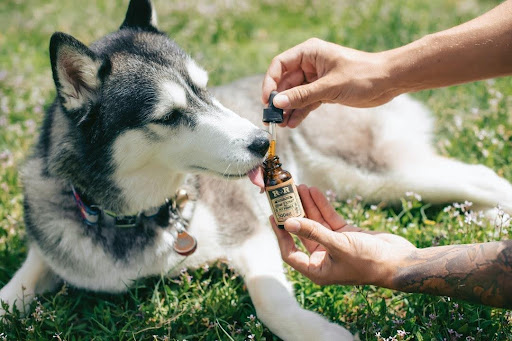
Written By: Pet Tech Labs Team
Contract manufacturing is pivotal in bringing your exciting ideas for animal supplements to market. As the demand for high-quality animal supplements continues, businesses must navigate this terrain carefully.
As you plan production and scale up, avoid these six critical mistakes when contract manufacturing animal supplements. This will ensure your products meet regulatory standards, satisfy consumers, and lead to successful partnerships.
One of the gravest mistakes a business can make when venturing into contract manufacturing for animal supplements is not paying attention to quality standards. In an industry where the health and well-being of beloved pets and animals is at stake, there are other options than compromising on quality.
Failing to prioritize stringent quality control measures can lead to dire consequences, including product recalls, legal repercussions, and long-term damage to your brand's reputation. Customers place their trust in the trustworthiness and efficacy of your supplements, making it imperative that every step of the manufacturing process adheres to the highest quality standards.
You can prove your commitment to quality by getting certified by the National Animal Supplement Council (NASC). NASC is a nonprofit trade association whose mission is to promote the health and well-being of animals that receive supplements. It aims to protect and enhance the animal health supplement industry and give consumers confidence their pets are taking high-quality supplements.

Innovation is key to staying competitive in the animal supplements industry. With a strong focus on R&D, you can get ahead of competitors, keep up with market trends, and deliver products that meet the evolving needs of pet consumers. Collaborating with experienced formulators and investing in developing cutting-edge supplements is paramount to staying competitive in this dynamic industry.
Effective R&D doesn't merely involve developing new product ideas; it encompasses a comprehensive understanding of the specific needs of different animal species, the science behind supplement formulations, and the ability to adapt to changing consumer preferences. A commitment to R&D allows you to create supplements that are science-backed, effective, unique, and tailored to address specific health concerns.
It's about finding the right balance between tried-and-true formulations and embracing innovation to stand out in a crowded marketplace. Neglecting this aspect can lead to a lack of product diversity, missed opportunities for growth, and, ultimately, stagnation in an industry that thrives on innovation and progress.
Failing to establish clear, transparent lines of communication with your chosen contract manufacturer can be a costly mistake. It can lead to misunderstandings, delays, and a breakdown in trust, significantly impacting the quality and timeliness of your product deliveries. To avoid this pitfall, it's essential to establish robust communication channels and maintain open dialogue throughout the manufacturing process.
Establishing expectations from the outset is crucial. Clearly define project timelines, milestones, and deliverables, and ensure that both parties are aligned on these factors. Regular updates and progress reports are vital for staying informed about the status of your supplement production.
Moreover, fostering an environment where questions and concerns can be openly discussed can help prevent minor issues from snowballing into major complications. Effective communication extends beyond the technical aspects of manufacturing; it's about building a collaborative relationship with your contract manufacturer based on trust, transparency, and shared goals.
The animal supplements industry is subject to strict regulations, often overseen by government agencies such as the FDA, USDA, and AAFCO. Adherence to these rules can prevent disaster for your business. It's crucial to familiarize yourself with the regulatory framework relevant to your supplements, ensuring that every aspect of production, from ingredient sourcing to labeling, complies with the law.
Each jurisdiction may have its own set of rules, making it even more critical to have a comprehensive understanding of the regulatory landscape. Documentation and record-keeping are integral parts of regulatory compliance. Accurate and detailed records not only demonstrate your commitment to transparency but also serve as essential tools in case of audits or recalls.
Packaging serves as the first line of defense in ensuring the safety and integrity of your supplements. It protects them from environmental factors, such as moisture and light, that can degrade their effectiveness. Additionally, user-friendly and tamper-evident packaging enhances the overall consumer experience, fostering trust in your brand.
Accurate and compliant labeling is equally vital. It's not just about aesthetic design; it's about conveying crucial information to consumers. Don’t omit details, such as ingredient lists, dosage instructions, and safety warnings. This can lead to legal trouble and erode customer confidence.
Moreover, animal supplements often target various species with distinct needs and restrictions. Ensuring your labeling adheres to the specific regulations governing these diverse animal groups is paramount. In a market where consumers are increasingly discerning about the products they choose for their pets and animals, overlooking packaging and labeling can be a significant barrier to success.
The animal supplements market is dynamic and competitive, and as your business grows, the ability to scale up production becomes critical. Partnering with a contract manufacturer that cannot accommodate your increasing demands can lead to production bottlenecks, delays, and missed opportunities.
Scalability is not just about having enough production capacity; it's about having the flexibility to adapt to market fluctuations and growth trends. As your product gains popularity, you need a contract manufacturer that can swiftly increase production volumes without compromising quality.
Long-term partnerships and strategic planning with your manufacturing partner are essential to ensure that your business can ride the wave of success without being held back by production limitations. By addressing scalability from the outset, you position your animal supplement business for sustainable growth and a competitive edge in a rapidly evolving industry.
Avoiding these six common mistakes when contract manufacturing animal supplements is essential for the success and longevity of your business. Prioritizing quality, research and development, clear communication, regulatory compliance, packaging, and scalability planning will set you on the path to thriving in the competitive world of animal supplements.
By making informed choices and partnering wisely with contract manufacturers who share your commitment to excellence, you can create a product line that meets consumer needs, complies with regulations, and fosters trust in your brand.

Approximately 40% to 60% of pet owners consider packaging and labels when shopping for animal...
Pet Tech Labs Team

Consistency and quality are essential ingredients for success in the pet supplement industry. Any...
Pet Tech Labs Team

Pet Tech Labs® sets the gold standard for companies looking for top-quality pet supplements and private labeling or contract manufacturing solutions
Pet Tech Labs® is part of the FoodScience® family of brands. Learn more at foodsciencecorp.com
1877 Midland St.
Syracuse, NE 68446
402.269.3195
FoodScience® LLC
929 Harvest Lane
Williston, VT 05495
1-800-451-5190